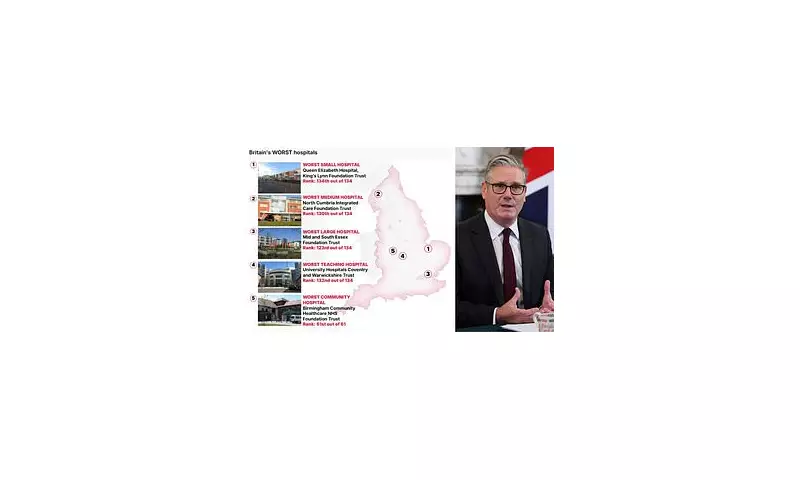
An explosive investigation has uncovered a shocking disparity within England's National Health Service, where chief executives presiding over some of the country's most critically failing hospitals are receiving astronomical remuneration packages that eclipse even the Prime Minister's salary.
Lavish Salaries Amidst Catastrophic Failings
The Daily Mail's comprehensive analysis reveals that bosses at the ten worst-performing hospital trusts in England are collectively pocketing nearly £2 million annually. This staggering sum comes despite their institutions receiving the lowest possible ratings from health watchdogs for quality and safety.
Most outrageously, several of these CEOs are taking home more than the Prime Minister's £167,391 annual salary, with some packages exceeding £200,000 when bonuses and benefits are included.
The Worst Offenders Exposed
Among the most egregious cases uncovered:
- University Hospitals Birmingham NHS Trust CEO David Melbourn receives approximately £200,000 annually while the trust battles a £90 million deficit and serious care quality concerns
- Medway NHS Foundation Trust's James Devine earns around £195,000 despite the trust being placed in special measures following a damning 'inadequate' rating from inspectors
- Northern Care Alliance NHS Foundation Trust's Dr Owen Williams enjoys a package worth about £210,000 while the trust faces multiple investigations into patient safety failures
Patients Pay the Price for Executive Excess
This financial scandal unfolds against a backdrop of deteriorating patient care. Many of these trusts show alarming statistics including:
- Dangerously long A&E waiting times exceeding 12 hours
- Critical staffing shortages affecting patient safety
- Mounting waiting lists for essential treatments
- Multiple 'inadequate' ratings from the Care Quality Commission
Public Outrage and Political Response
The revelations have sparked fury among patient advocacy groups and health professionals. Dennis Reed of Silver Voices, a campaign group for older citizens, condemned the situation as "a scandal of epic proportions" that demonstrates "warped priorities" within the NHS hierarchy.
Health experts argue that these excessive executive packages represent a fundamental misallocation of scarce NHS resources that should be directed toward frontline patient care rather than lining the pockets of failing administrators.
This investigation raises serious questions about accountability, transparency, and financial governance within Britain's most cherished institution, suggesting that without urgent reform, patient care will continue to suffer while executives reap unjust rewards.





